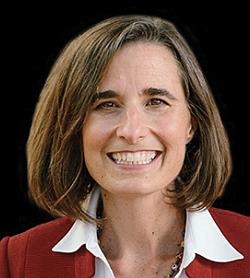Va. lawmakers again decline to put restrictions on personal use of campaign accounts
Sarah Rankin/The Associated Press | 3/7/2024, 6 p.m.
Virginia lawmakers on Wednesday defeated for another year campaign finance reform legislation that would have prohibited elected officials from spending political donations on personal expenses such as mortgages, vacations or gym memberships.
Virginia — which allows unlimited donations from individuals, corporations and special interest groups — is a national outlier for lacking such a ban, and advocates at the General Assembly have been trying for more than a decade to put personal use restrictions on candidates’ spending.
Their hopes that a bill would reach GOP Gov. Glenn Youngkin’s desk this year ended with Wednesday’s unrecorded voice vote in a House Appropriations Committee, as that measure was the last personal use ban still alive. Another version died in the House of Delegates earlier this session for lack of a hearing.
Democratic Del. Luke E. Torian, who chairs the Appropriations Committee, said that both he and Democratic House Speaker Don Scott would like to see the bill pass next year. He didn’t explain his reasoning for a delay.
“So this is going to be one of the priorities that will be before us during the 2025 session,” he said.
Democratic Delegate Mark D. Sickles said he “reluctantly” motioned to carry the bill over to next year.
Lawmakers have routinely characterized the issue as something they want to tackle while deferring action on it. Gov. Youngkin has not weighed in publicly on the issue, with his office saying only that he would review any legislation that reached his desk.
The defeated bill, sponsored by Sen. Boysko, would bar candidates from converting campaign contributions “to personal use,” defined as spending on a “commitment, obligation, or expense” that would “exist irrespective of the person’s seeking, holding, or maintaining public office.”
Currently lawmakers are only barred from converting campaign funds to personal use once they close out their accounts. A 2016 Associated Press review of the state’s
campaign finance system found some lawmakers frequently using campaign accounts to pay for pricey meals and hotels as well as personal expenses.
The bill includes a list of prohibited expenses such as mortgages, rent, clothing, non-campaign vehicles, country club memberships or vacations. Allowable expenses include child care costs incurred as a direct result of running for or holding public office.
Under the measure, the State Board of Elections would investigate complaints and in some circumstances have the option to assess a civil penalty.
In a previous hearing, Republican Delegate Paul Milde, a newly elected House member, said it was “beyond” him why the bill was in trouble.
“The only rationale I could see for some of us resisting this after 10 years is because
they ... want to have the flexibility to buy things that really aren’t campaign-related things. And I just can’t believe we can’t get together on this,” he said.
Sen. Boysko, whose bill cleared the Senate by a 35 to 4 vote, was not immediately available for comment.
The legislation’s defeat comes as lawmakers have been advancing two pathways to commissioning reviews of their compensation and whether it should be increased.








